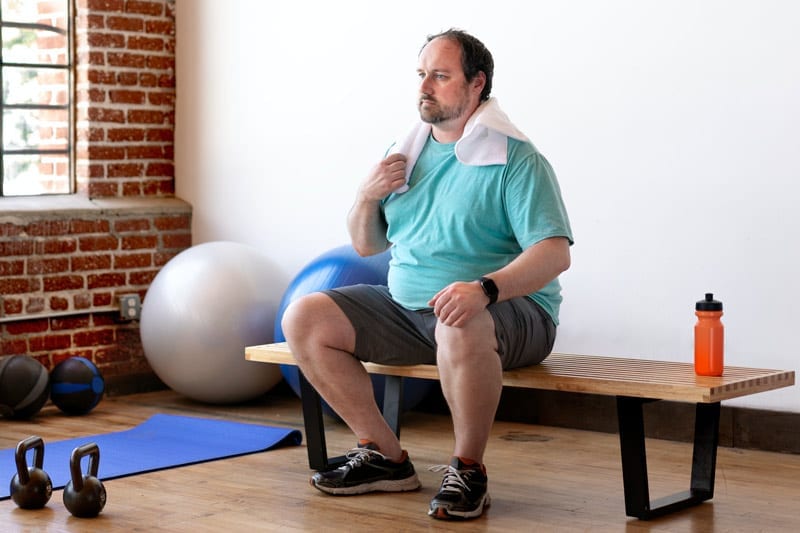When you are feeling depressed or anxious, you may feel like there’s nothing that you can do to get out of the rut you’re in. Fortunately, there might be some simple things that you can do that will make you feel better, and they can be as simple as drinking more water or exercising. Here are seven natural ways to reduce depression and anxiety.
Have A Routine
It’s a lot harder to think about your depression and anxiety if you have a routine. At first, you may feel hopeless, as if there’s no way you can start a routine in your current mental state. However, it will soon get easier, and you will find that your depression and anxiety are more under control.
Make Goals
Your life can feel as if it doesn’t have a sense of purpose if there is nothing you are working to achieve. This can cause more depression and anxiety. You can reduce the likelihood of this happening by making goals. While you should make some long-term goals, you will benefit from making short-term goals as well. Just make sure they are attainable. If you make the goals too difficult to achieve, you may feel more depressed or anxious if you aren’t able to accomplish them.
Exercise Daily
We all know that exercise is good for your body, but many people don’t realize that it’s good for their minds as well. When you exercise, endorphins are released. These endorphins can have a positive effect on your mood. Even just a quick walk can cause your body to release endorphins. For those who deal with anxiety or depression, they may find that exercising daily helps put them in a positive frame-of-mind.
Eat Better
If you are dealing with depression and anxiety, it might cause you to overeat to help you cope. While overeating may make you feel better temporarily, it can make you feel worse in the long run. This is why it’s crucial to eat better. Try to distract yourself and go for a run or call a friend. If you feel that you absolutely must binge on something, make healthier choices. Stick to fresh fruits and vegetables or low-calorie foods.
Prioritize Sleep
Depression and anxiety can make it difficult for you to sleep. You probably will have a lot of negative thoughts that will keep you up at night. However, that will just increase your anxiety and make your depression worse. Fortunately, there are some things that you can do to help you sleep better. Don’t nap during the day. Napping will make it more difficult to fall asleep at night. Go to bed at the same time. Don’t watch television in bed or scroll through your social media pages on your phone.
Drink More Water
It’s important to drink enough water each day. Failing to do so will cause you to get dehydrated, and it can make your depression and anxiety worse. Try to drink at least eight glasses of water each day. You may need to download an app on your phone to remind you to do so. You should also carry a water bottle with you and refill it throughout the day.
Add More Fun To Your Life
If all you do is work or take care of your responsibilities, then you may find that you are often depressed or anxious. You should try to add more fun to your life to see if it helps. If you tend to be very social, you may want to take a class with your spouse, or schedule weekly outings with your friends. If you are more of an introvert and would rather stay home, set aside time to do something you enjoy each day like reading, or have a weekly movie night in your living room. It doesn’t matter what you do as long as you have fun doing it.
In conclusion, if you are dealing with depression or anxiety, there are some ways to cope with it naturally. All of the suggestions mentioned above can easily be incorporated into your daily life. Keep in mind that you may need to try a few different things to deal successfully with your depression or anxiety.
About the Author: Nichelle Smith is a nutritionist and fitness lifestyle writer. She loves sharing her ideas and personal experiences related to nutrition and fitness through her writing. She currently writes for Big Berkey Water Filters. Her favorite pastime, aside from sleeping, is working out and reading books together with her cat, Charlie.
The opinions and views expressed in this guest blog do not necessarily reflect those of www.rtor.org or its sponsor, Laurel House, Inc. The author and www.rtor.org have no affiliations with any products or services mentioned in this article or linked to herein.
Recommended for You
- Why Eating Disorders in Men Are Often Missed - July 3, 2025
- No More Silence: The Opioid Epidemic’s Alarming Impact on Women - June 30, 2025
- The Hidden Impact of Repressed Memories on Mental Health and How to Heal - June 26, 2025





